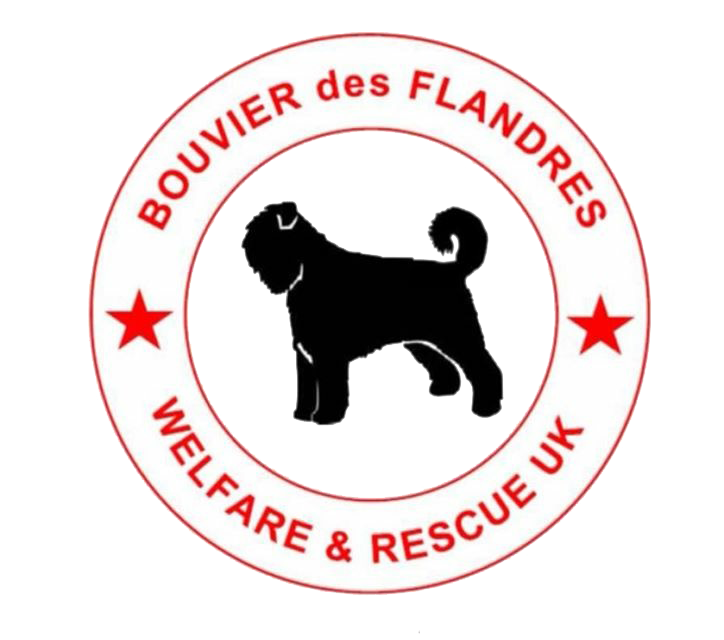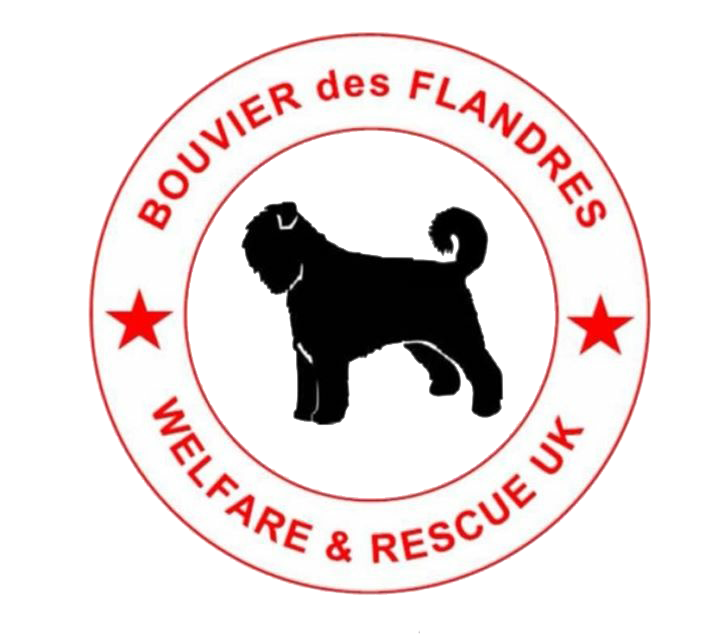Bouviers were bred to share in the work of the farm family and to spend most of their waking hours working with the family. They thrive on companionship and they want to be wherever you are. They are happiest living with you in your house and going with you when you go out. While they usually tolerate being left at home by themselves (preferably with a dog-door giving access to the fenced yard), they should not be relegated to the backyard or kennel. A puppy exiled from the house is likely to grow up to be unsociable (fearful and/or unprovokedly aggressive), unruly, and unhappy. He may well develop pastimes, such as digging or barking, that will displease you and/or your neighbors. An adult so exiled will be miserable too. If you don’t strongly prefer to have your dog’s companionship as much as possible, enjoying having him sleep in your bedroom at night and sharing many of your activities by day, you should choose a breed less oriented to human companionship. Likewise, if your job or other obligations prevent you from spending much time with your dog. No dog is really happy without companionship, but the pack hounds are more tolerant of being kenneled or yarded so long as it is in groups of 2 or more. A better choice would be a cat, as they are solitary by nature.
About Us
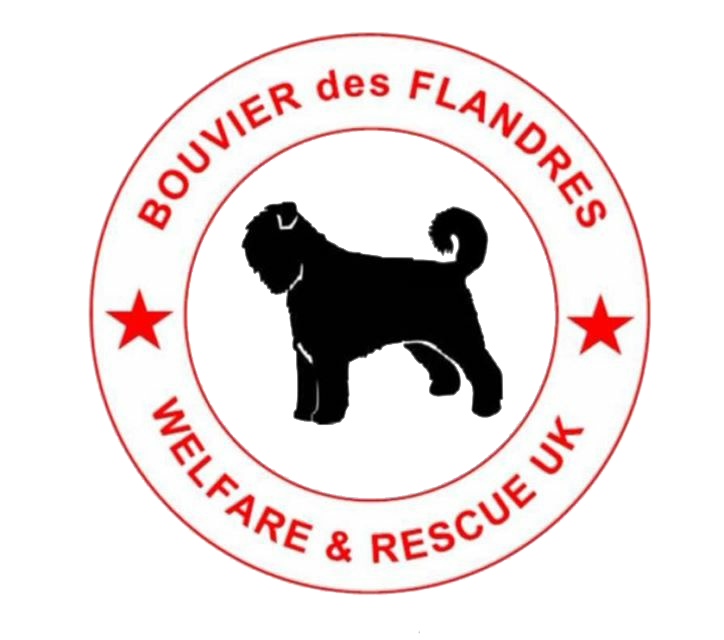
We provide support, care and advice on all aspects of rescue and welfare.
For the benefit of all Bouvier Des Flandres and the people who breed, own and show them.
We are endorsed by the Kennel Club as a Bouvier Des Flandres breed rescue.
If you are thinking of buying a Bouvier, consider this…
supporting all Bouvier Des Flandres worldwide
How we work
Who we are
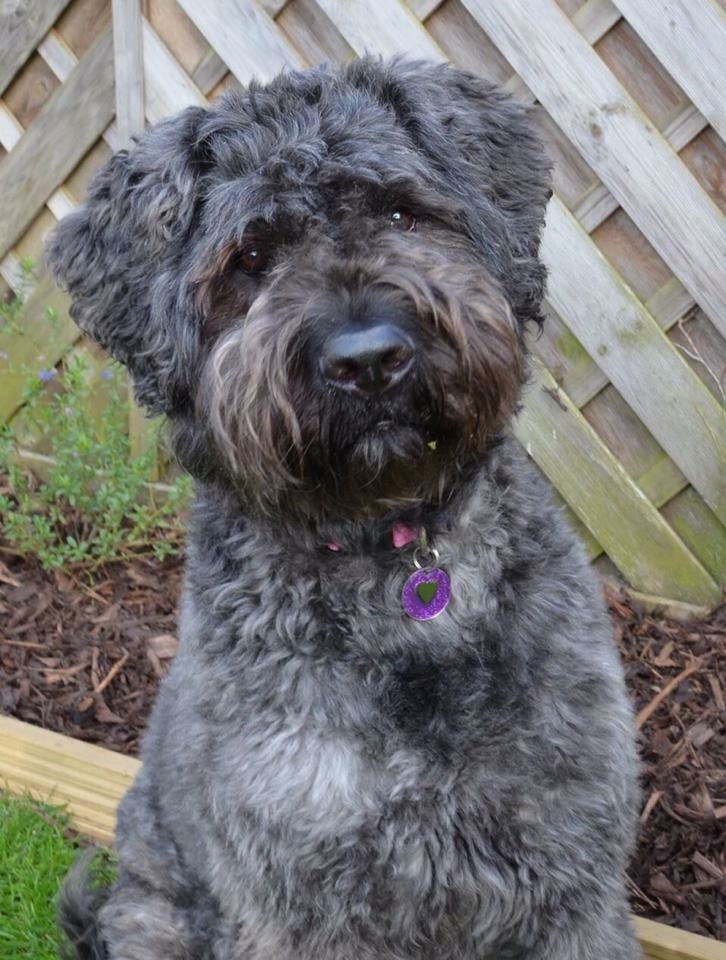
Bouvier Welfare & Rescue UK (BW&RUK) is the only fully INDEPENDENT active Bouvier Welfare organisation in the UK.
In recent times, we have seen the formation of the new National Bouvier Club. Therefore, we now have two Breed Clubs in the mainland UK, both accredited by The Kennel Club. We also have The Bouvier des Flandres Club of Northern Ireland. It makes financial and practical sense to have one Welfare and Rescue organisation serving all existing clubs as well as any future Breed Clubs that may come. We are after all a small community with a relatively rare breed.
Membership
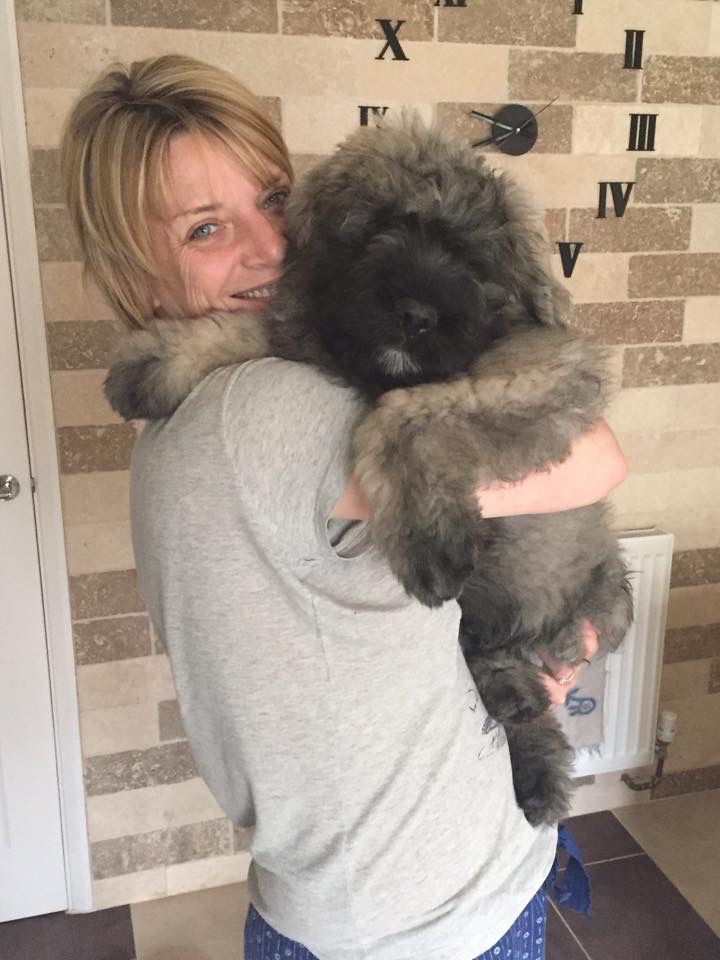
We have a national network of BouVolus (Bouvier Volunteers) who help to do this and which is comprised of many experienced Bouvier people from both Breed Clubs as well as independent volunteers. We have links with many national and generic dog welfare organisations, Vets, Behaviourists and other canine specialists in rehoming Bouviers as well as offering more pro-active advice and events to all members on all aspects of Bouvier welfare.
We have the experience to do this through years of successful work.
We do not currently nor intend to in the future charge for membership. We are an entirely voluntary independent organisation that runs on goodwill and love of the Bouvs. We are not a Breed Club. We are concerned with Welfare and Rescue of Bouviers only. You can join our membership list by contacting us through this website.
Our Partners
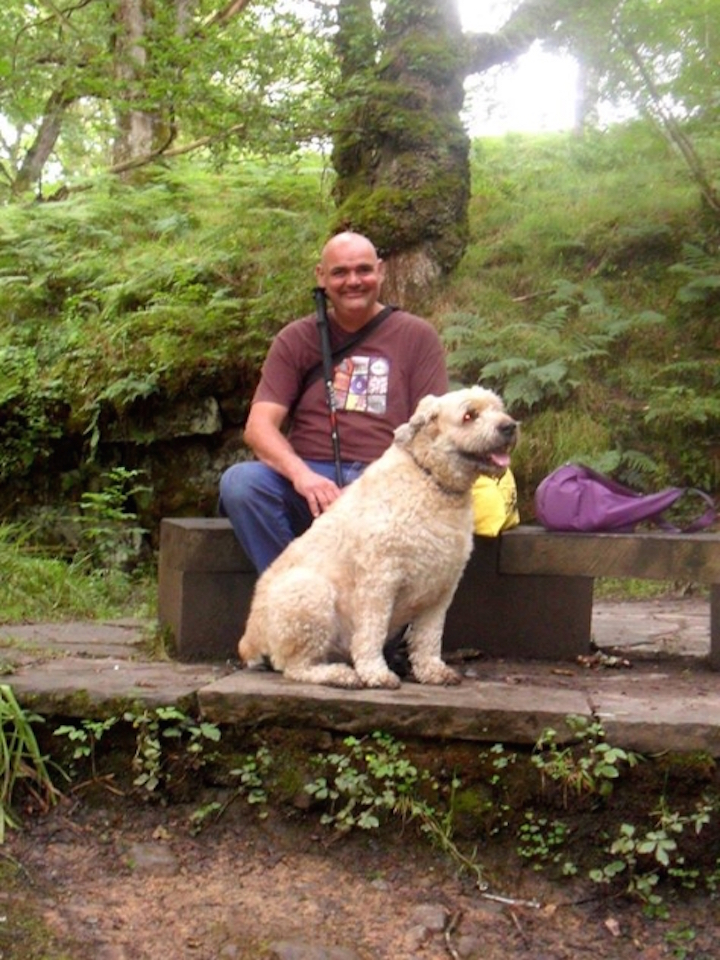
Bouvier Welfare & Rescue UK have the full and practical support of the nbc and we liaise regularly with their own Welfare Coordinator.
We are also endorsed by the Bouvier Club of Northern Ireland.
We think it is very important that we all work together for the love and betterment of our breed. It’s all about the Bouvs!
Our Rescue Work
Bruce’s Story
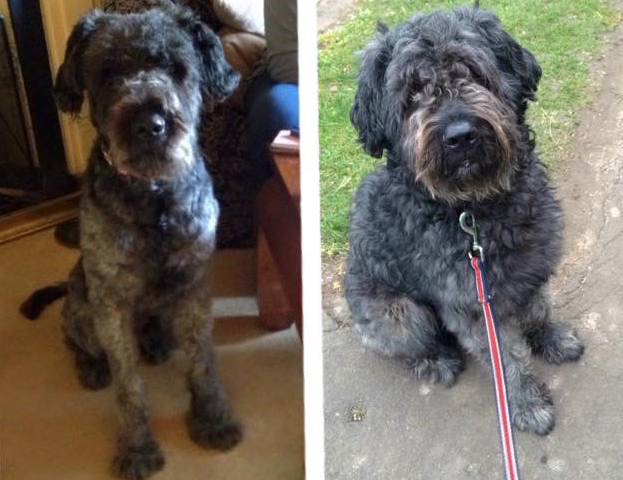
If you are considering rescuing a Bouv then you have to understand the breed. You should research the breed; their history is interesting, and qualities outstanding. They are a powerful herding dog. They have all the instincts of a herding dog but as you can see from above they can have very distinct personalities. Because they are powerful if not trained and abused, or if trained to be aggressive they can be an issue to their environment.
Because they are a herding dog they
• need lots of exercise to meet their breed needs
• they are great with children and a loyal family dog
• they are protective of the family, and are easily introduced to strangers
Because they are powerful they
• need lots of exercise to stay healthy
• need to feel they are working
• extremely brave
• can deal with boisterous and over zealous children
• need to be extremely well trained and obedient
• can be intimidating to other dogs and neighbours therefore need lots of socialisation
So if you decide to take on a rescue Bouv, you could get a dog that was well trained and perfect like our Tweedle, therefore the directions would be give lots of love and exercise and enjoy your life together. However lets look at our Brucie, probably an almost worse case scenario. The only issue he did not have to make it a worse case scenario is that he isn't people aggressive, fortunately he is a lady's man and lover boy, and loves people. Here are his issues as started by the Bouvier Rescue group. Bruce had two and a quarter years with a family and little is known about his situation there, but he was not trained, and then spent 5 months in a kennel waiting to be rescued. He knows how to sit (on his own terms) Is tolerant of being bathed and groomed (as long as there is a wrestling match to be enjoyed), He gets very excited around other dogs and has shown himself to be very dominant and aggressive towards them (He was over the top in this area). Has chased and killed chickens and hates small animals, dogs and cats (His initial approach to the ducks around the pond and small dogs that he met confirmed this in spades). He digs at every opportunity especially if there are signs of moles, rabbits etc. What I can add is that he was totally uncontrollable on lead, and a major flight risk.
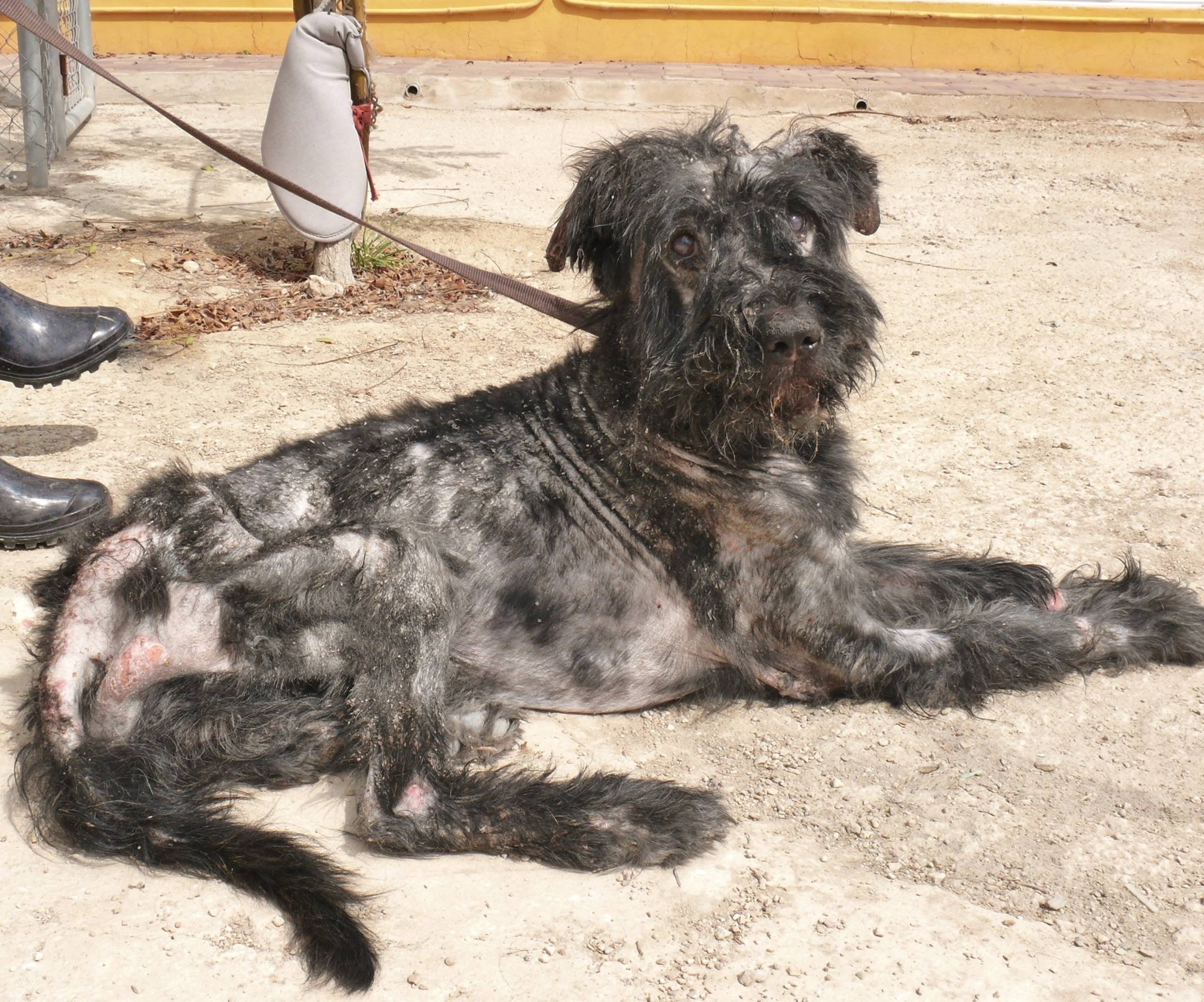
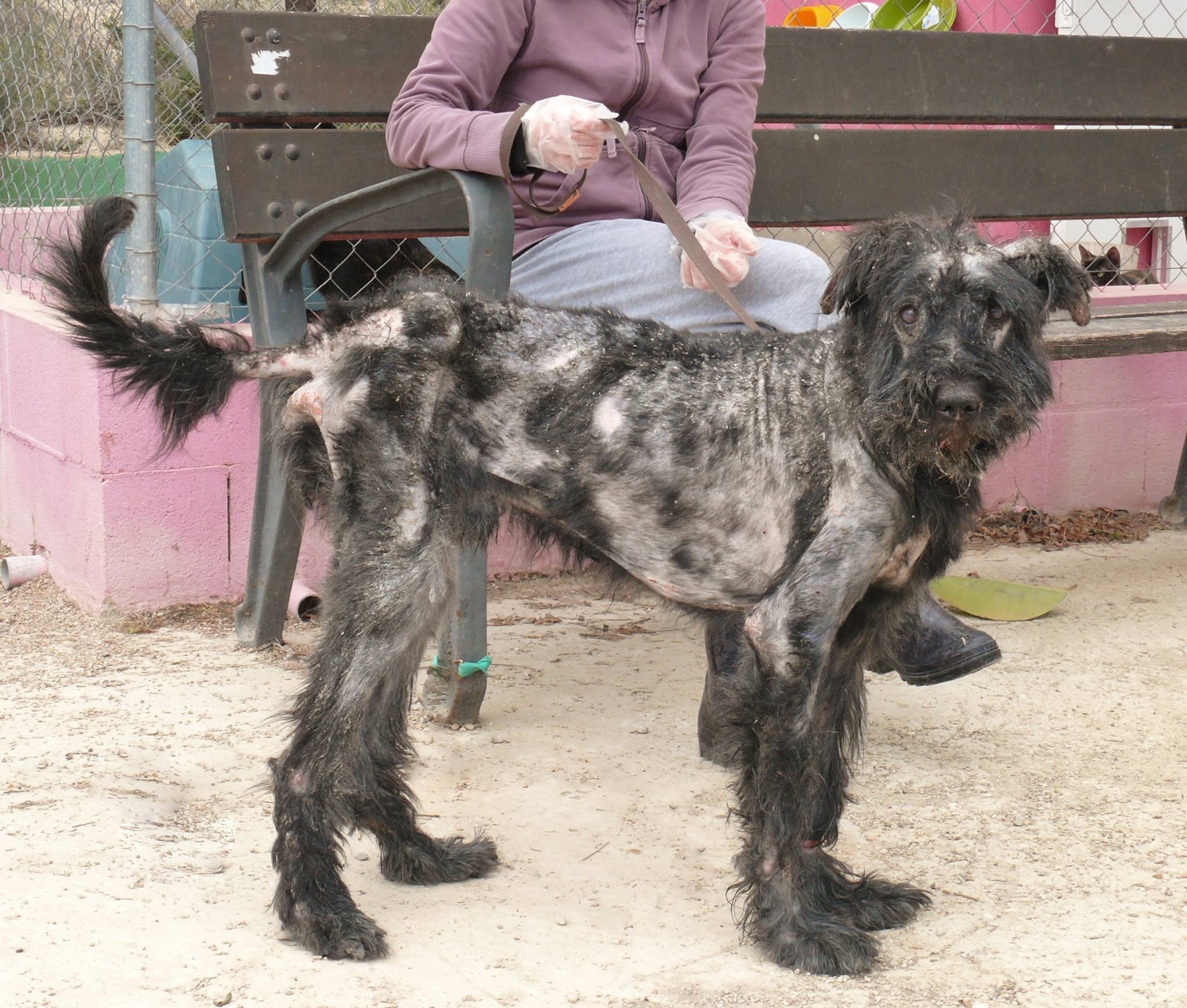

So what we did was go through the processes as I list below and made a decision to take Brucie on as a trial basis.
• Understand his issues before you see the dog
• Go see the dog and give it a test drive, spend some time with him in his home surroundings, take him for a long walk in different situations
• Make a list of all the dogs issues and needs and make a plan on how you will deal with them.
• Determine potential behaviour on lead, off lead, in car, in house and in my neighbourhood.
• Who will he be living with and how to introduce him and any potential risks such as young children or old folks.
• Do you have a vet that understands the breed.
• How do you introduce the dog to neighbours and other dog walkers.
• Get the dog an ID collar.
• Understand the dogs dietary requirements.
• What training does the dog need.
• Do you have the proper leads for exercise.
• Make decision to house or not house based on you ability to meet the dogs needs.
• Come to agreements with all family members what commands are to be used.
We Bruce proofed our house, limited his access to the garage, and the upstairs guest room where he would sleep. Made an appointment first thing Monday with the vet for a health check, booked a training session with a dog behaviourist Monday after the Vet. We picked Bruce up on Sat morning. We gave him an hour of exercise in an enclosed field which included sprinting walking and free reign. Due to his lack of exercise in the kennel this exhausted him. Then a two hour ride to his new home but first a two hour walk in the common. At home straight into his crate for a sleep, now he is really tired. That evening a two hour walk with a weighted doggy knapsack. Then bed and a restful night. The next day we had a much more compliant dog after 5 walks and working sessions. For the rest of the week 6 hours of daily exercise which included weight jacket walks, pulling 10k plate around the park, fun walks and a gradual introduction of training and basic commands. At the end of the first week he had become lead manageable, we were able to have him sit and go nose to nose with the ladies and say high big or small. By the end of the second week he was very good on the lead, could meet other dogs and say hi. He now has a big golden retriever Milo who he can tussle with and most of the time behaves. He can sit 4 to 5 feet away from the ducks and watch them all, and he sits on loose lead. He has never dug or shown an interest to dig. And in the enclosed basketball court he was heeling off lead with 60 to 70% success. He is a joy to be with. There is a lot more socialisation work to be done, I still don't trust him off lead, and he is showing new mini issues every day, but they are easy to deal with. Bruce's issues all came from the fact he had no training and he was kennel bound and bored and frustrated. He now has virtually none of his issues on lead, off lead could be another issue. In the house he now has the run as long as we are around, but can only enter rooms with permission. He now is a great companion, I understand his head set, he wants to be the
leader on the walks so on long lead he has his way as long as it is loose, on short lead I lead still some small issues here. We were expecting a three to six month retraining with Bruce, but his three-week metamorphic change was a total surprise. So the formula with a dog like Bruce is first exercise and lots of it, secondly challenge him mentally by giving him different situations to deal with and thirdly training slowly introduced with lots of patience and never putting him in a situation where he can have a major failure.
So the training equipment you need with an unruly bouv new guy is a very sturdy lead and collar, a high quality retractable long lead. Always have the lead secure around your wrist, for unexpected take off, (key time for this awareness is when you are bending down to pick up poop), a dog knapsack to put weight in. Optional equipment pulling halter, rope, 5 & 10 kilo plates to pull, roller blades for the dog to pull you, and eventually a wagon.
Adoption and Fostering
About rehoming
Please note our rehoming policies are not 'blanket rules' as each dog will require a specific type of home with or without certain needs. Feel free to contact us for more info on our policies.
Fostering
Adoption Form
Please download our Adoption Application Form here
Make a Donation

If you wish to donate via PayPal, click here
or contact us for our bank or standing order details.
Thank you for your support.
If you would like help or advice regarding your Bouvier, or about rehoming please call Andy Collins on 07518 929316 or email on [email protected]
Contact Us
Currently, BW&RUK remains an independent organisation served by a Steering Group. We are also establishing a charitable arm which in addition to the above comprises of
Andy Collins - Lead Officer
We also have Coordinators who are co-opted to undertake specific roles
Ann Flanagan - Merchandise & Treasurer
Kerry King - Auction Administrator
Jonathan Everett - BouVolus Coordinator
07866 683897
4 Bisterne Avenue
London
E17 3QS
